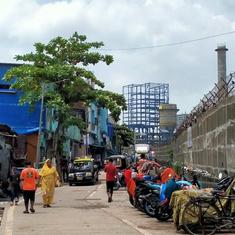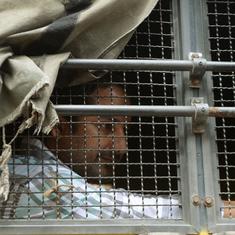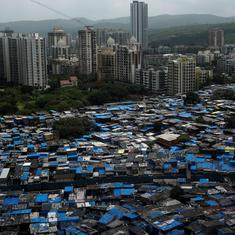Principal among three arrested in Madhya Pradesh school hijab row
Hindutva groups had made allegations of religious conversion after a poster of the Ganga Jamuna School showed non-Muslim students wearing hijabs.

The principal of a school in Madhya Pradesh’s Damoh district that is at the centre of a controversy over allegations of non-Muslim students being forced to wear hijabs has been arrested, the police told The Indian Express on Monday.
The controversy erupted late last month after a poster of the Ganga Jamuna Higher Secondary School congratulating 18 students for their performance in the board examination went viral. It showed girl students, irrespective of their religion, wearing headscarves.
Hindutva groups had made allegations of religious conversion and staged protests demanding that the school’s registration be cancelled. However, the school administration has maintained that the headscarves were part of the uniform and students were not compelled to wear them, according to The Indian Express.
Apart from school principal Afsha Sheikh, the police have also arrested mathematics teacher Anas Atahar and security guard Rustam Ali in the case.
They were taken into custody based on the “statements of six-seven witnesses comprising mainly of the school students and their family members”, Damoh Superintendent of Police Rakesh Singh said.
Three of them were produced before a local court on Sunday and sent to judicial custody.
On June 7, the police filed a case against 11 members of the school management committee under Indian Penal Code Section 295 (damaging or defiling any object held as sacred by any class of persons) and 506 (criminal intimidation), as well as provisions of the Juvenile Justice (Care and Protection of Children) Act and the Madhya Pradesh Freedom of Religion Act, 2021.
On June 2, the state education department derecognised the school, claiming several facilities meant for students were inadequate or unavailable. The local municipal authority has also threatened to demolish parts of the school that it considers unauthorised.
The school, located about 250 kilometres from state capital of Bhopal, was established by the Ganga Jamuna Welfare Society in 2010. It has about 1,200 students, most of whom are from working-class households and whose parents work as labourers, farmers and beedi makers, The Indian Express reported.









